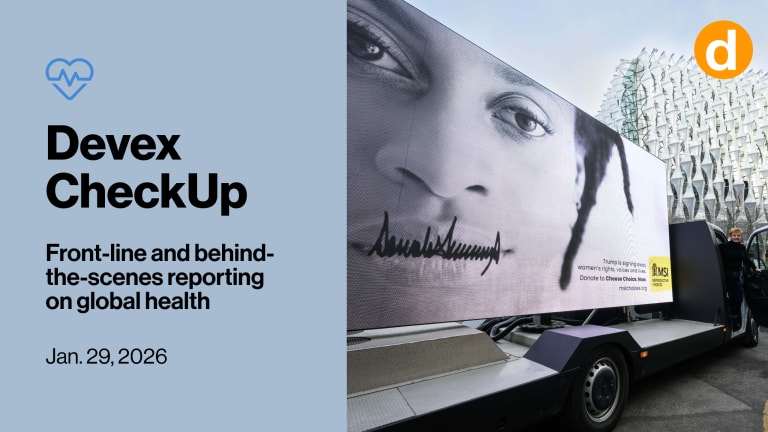
LONDON — The U.K. on Friday announced a £46 million ($60 million) aid package to fight the new coronavirus, including funding for a rapid diagnostic test and assisting health system preparation in vulnerable countries.
“Rapid testing is going to be key to managing this outbreak, but ultimately vaccines are going to provide the long-term protection we need.”
— Patrick Vallance, U.K. chief scientific officerBut NGOs called for more detail on its plan to help low-income countries prepare for a pandemic.
More on COVID-19:
► Australia coronavirus support to Indo-Pacific to come from existing aid budgets
► US Congress commits $1.25B to international coronavirus response
A rapid test to diagnose patients with COVID-19 is still lacking but is seen as an essential tool in fighting the outbreak. The laboratory tests currently used take several days, which could place huge burdens on health systems even in well-resourced countries as the virus spreads. It is hoped that a rapid test could take as little as a few minutes.
The test will be manufactured in the U.K. and Senegal — the first time a rapid diagnostic test will be produced on the African continent. The plan was described as “really exciting and quite novel” by Emily Adams, senior lecturer in diagnostics for infectious disease at the Liverpool School of Tropical Medicine.
Prototype rapid tests, developed in the U.K. by diagnostics technology company Mologic, are expected to be available for assessment in several weeks, while manufacturing in a new Senegalese facility, named DiaTropix, should begin in June, according to Adams, who is part of a team helping to evaluate the test.
She told Devex: “In lower- and middle-income countries, there are usually only few laboratories in entire countries which are able to perform molecular testing, so it’s a huge benefit to be able to diagnose coronavirus outside of laboratory infrastructure, with a cheap point-of-care test. An added value is that this will aid self-isolation, as suspects can be tested at home.”
DiaTropix is expected to produce 2 million units per year and to distribute tests directly within Africa. That should help keep costs down — lower-income countries are unlikely to be able to afford the prices set by Western medical companies for rapid tests — and improve distribution on the continent.
“It's time now the global south is given the tools and support to respond to their own challenges,” Adams added.
Patrick Vallance, the U.K.’s chief scientific officer, noted that “rapid testing is going to be key to managing this outbreak, but ultimately vaccines are going to provide the long-term protection we need.” Urgent work to develop a vaccine is already underway, but it will be at least a year until one can be rolled out.
A U.K. government statement said that it was also funding infectious disease experts to support lower-income countries that are highly exposed and have “large urban populations and transport links to the UK and to China and other countries experiencing large outbreaks.”
It said experts will “support countries to prepare for and respond to suspected cases, for example by creating effective isolation zones.”
But the U.K. government was urged to provide more insight into how it planned to help those countries prevent the spread of the new coronavirus.
“Countries with strong health systems and economies must help those that don’t,” said Gareth Wallace, interim head of policy, advocacy, and campaigns at World Vision UK.
“We welcome the new funding announced today by the Department for International Development to help prevent the spread of the virus in developing countries and call on it to urgently publish detailed plans on how it will assist these nations,” he added.
“This is more than a moral imperative — it is crucial to ensure global efforts to eradicate poverty are not shattered.”
Search for articles
Most Read
- 1
- 2
- 3
- 4
- 5


